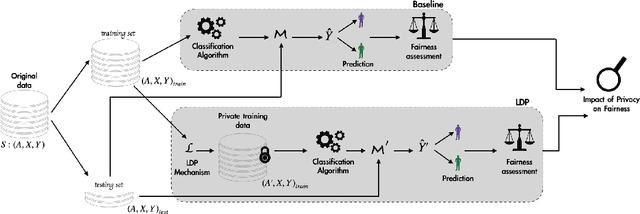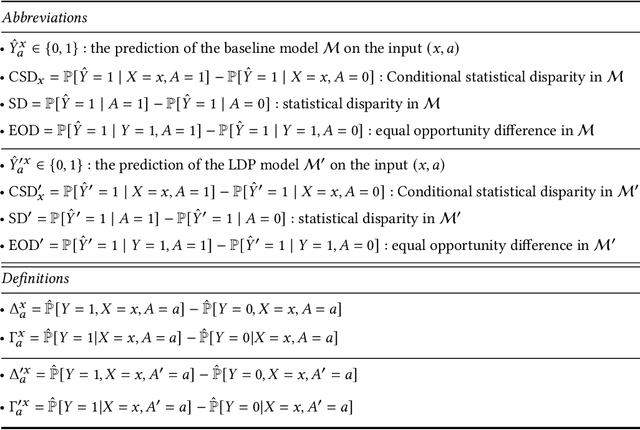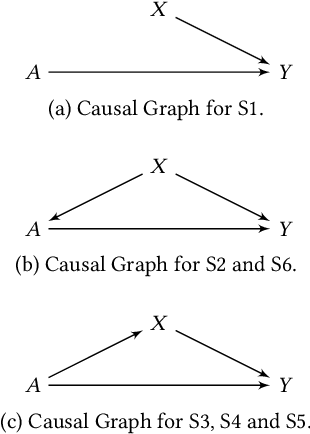Tamara Stefanovic
A Systematic and Formal Study of the Impact of Local Differential Privacy on Fairness: Preliminary Results
May 23, 2024



Abstract:Machine learning (ML) algorithms rely primarily on the availability of training data, and, depending on the domain, these data may include sensitive information about the data providers, thus leading to significant privacy issues. Differential privacy (DP) is the predominant solution for privacy-preserving ML, and the local model of DP is the preferred choice when the server or the data collector are not trusted. Recent experimental studies have shown that local DP can impact ML prediction for different subgroups of individuals, thus affecting fair decision-making. However, the results are conflicting in the sense that some studies show a positive impact of privacy on fairness while others show a negative one. In this work, we conduct a systematic and formal study of the effect of local DP on fairness. Specifically, we perform a quantitative study of how the fairness of the decisions made by the ML model changes under local DP for different levels of privacy and data distributions. In particular, we provide bounds in terms of the joint distributions and the privacy level, delimiting the extent to which local DP can impact the fairness of the model. We characterize the cases in which privacy reduces discrimination and those with the opposite effect. We validate our theoretical findings on synthetic and real-world datasets. Our results are preliminary in the sense that, for now, we study only the case of one sensitive attribute, and only statistical disparity, conditional statistical disparity, and equal opportunity difference.
 Add to Chrome
Add to Chrome Add to Firefox
Add to Firefox Add to Edge
Add to Edge